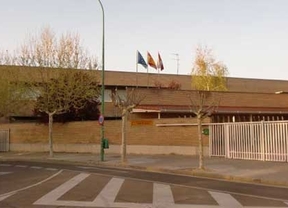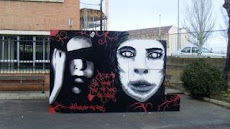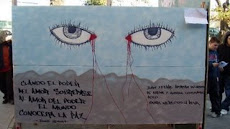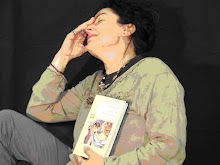
BODY LANGUAGE.
Body language is a form of non-verbal communication consisting of body pose, gestures, and eye movements. Humans send and interpret such signals subconsciously.
It is often said that human communication consists of 93% body language and paralinguistic cues, while only 7% of communication consists of words themselves- however, Albert Mehrabian, the researcher whose 1960s work is the source of these statistics, has stated that this is a misunderstanding of the findings see "Misinterpretation of Meharabian's rule" Others assert that "Research has suggested that between 60 and 70 percent of all meaning is derived from nonverbal behavior."
Understanding body language
The technique of 'reading' people is used frequently. For example, the idea of mirroring body language to put people at ease is commonly used in interviews. Mirroring the body language of someone else indicates that they are understood.
Body language signals may have a goal other than communication. Both people would keep this in mind. Observers limit the weight they place on non-verbal cues. Signalers clarify their signals to indicate the biological origin of their actions. One example would be yawning, showing lack of interest, desire to change the topic.
Physical Expression
Physical expressions like waving, pointing, touching and slouching are all forms of nonverbal communication. The study of body movement and expression is known as kinesics. Humans move their bodies when communicating because, as research has shown it helps "ease the mental effort when communication is difficult." Physical expressions reveal many things about the person using them. For example, gestures can emphasize a point or relay a message, posture can reveal boredom or great interest, and touch can convey encouragement or caution.
One of the most basic and powerful body-language signals is when a person crosses his or her arms across the chest. This can indicate that a person is putting up an unconscious barrier between themselves and others. It can also indicate that the person's arms are cold which would be clarified by rubbing the arms or huddling. When the overall situation is amicable, it can mean that a person is thinking deeply about what is being discussed. But in a serious or confrontational situation, it can mean that a person is expressing opposition. This is especially so if the person is leaning away from the speaker. A harsh or blank facial expression often indicates outright hostility.
Consistent eye contact can indicate that a person is thinking positively of what the speaker is saying. It can also mean that the other person doesn't trust the speaker enough to "take his eyes off" the speaker. Lack of eye contact can indicate negativity. On the other hand, individuals with anxiety disorders are often unable to make eye contact without discomfort. Eye contact is often a secondary and misleading gesture because we are taught from an early age to make eye contact when speaking. If a person is looking at you but is making the arms-across-chest signal, the eye contact could be indicative that something is bothering the person, and that he wants to talk about it. Or if while making direct eye contact a person is fiddling with something, even while directly looking at you, it could indicate the attention is elsewhere. Also there are three standard areas that a person will look which represent different states of being.
If the person looks from one eye to the other then to the forehead it is a sign that they are taking an authoritative position. If they move from one eye to the other then to the nose, that signals that they are engaging in what they consider to be a "level conversation" with neither party holding superiority. The last case is from one eye to the other and then down to the lips. This is a strong indication of romantic feelings.
Disbelief is often indicated by averted gaze, or by touching the ear or scratching one's chin. When a person is not being convinced by what someone is saying, the attention invariably wanders, and the eyes will stare away for an extended period.
Boredom is indicated by the head tilting to one side, or by the eyes looking straight at the speaker but becoming slightly unfocused.
Interest can be indicated through posture or extended eye contact, such as standing and listening properly.
Deceit or the act of withholding information can sometimes be indicated by touching the face during conversation.
Excessive blinking is a well-known indicator of someone who is lying. Recently, evidence has surfaced that the absence of blinking can also represent lying as a more reliable factor than excessive blinking.
It should be noted that some people use and understand body language differently, or not at all. Interpreting their gestures and facial expressions (or lack thereof) in the context of normal body language usually leads to misunderstandings and misinterpretations (especially if body language is given priority over spoken language). It should also be stated that people from different cultures can interpret body language in different ways.
Examples list
Hands on knees: indicates readiness.
Hands on hips: indicates impatience or possibly the person is angry
Lock your hands behind your back: indicates self-control.
Locked hands behind head: states confidence.
Sitting with a leg over the arm of the chair: suggests indifference.
Legs and feet pointed in a particular direction: the direction where more interest is felt
Crossed arms: indicates submissiveness.
Body language and space
from you. Social distance is reserved for strangers, newly formed groups, and new acquaintances. The fourth identified zone of space is public distance and includes anything more than eight feet (2.4 m) away from you. This zone is used for speeches, lectures, and theatre; essentially, public distance is that range reserved for larger audiences.
Unintentional gestures
Recently, there has been huge interest in studying human behavioural clues that could be useful for developing an interactive and adaptive human-machine system. Unintentional human gestures such as making an eye rub, a chin rest, a lip touch, a nose itch, a head scratch, an ear scratch, crossing arms, and a finger lock have been found conveying some useful information in specific context. Some researchers have tried to extract such gestures in a specific context of educational applications.
25 examples of body language
1.- Gesture: Brisk, erect walk
Meaning: Confidence
2.- Gesture: Standing with hands on hips
Meaning: Readiness, aggression
3.- Gesture: Sitting with legs crossed, foot kicking slightly
Meaning: Boredom
4.- Gesture: Sitting, legs apart 
Meaning: Open, relaxed
5.- Gesture: Arms crossed on chest
Meaning: Defensiveness
6.- Gesture: Walking with hands in pockets, shoulders hunched
Meaning: Dejection
7.- Gesture: Hand to cheek
Meaning: Evaluation, thinking
8.- Gesture: Touching, slightly rubbing nose
Meaning: Rejection, doubt, lying
9.- Gesture: Rubbing the eye
Meaning: Doubt, disbelief
10.- Gesture: Hands clasped behind back
Meaning: Anger, frustration, apprehension
11.- Gesture: Locked ankles
Meaning: Apprehension
12.- Gesture: Head resting in hand, eyes downcast
Meaning: Boredom
13.- Gesture: Rubbing hands
Meaning: Anticipation
14.- Gesture: Sitting with hands clasped behind head, legs crossed
Meaning: Confidence, superiority
15.- Gesture: Open palm
Meaning: Sincerity, openness, innocence
16.- Gesture: Pinching bridge of nose, eyes closed
Meaning: Negative evaluation
17.- Gesture: Tapping or drumming fingers
Meaning: Impatience
18.- Gesture: Steeping fingers
Meaning: Authoritative
19.- Gesture: Patting/fondling hair
Meaning: Lack of self-confidence; insecurity
20.- Gesture: Quickly tilted head
Meaning: Interest
21.- Gesture: Stroking chin
Meaning: Trying to make a decision
22.- Gesture: Looking down, face turned away
Meaning: Disbelief
23.- Gesture: Biting nails
Meaning: Insecurity, nervousness
24.- Gesture: Pulling or tugging at ear
Meaning: Indecision
25.-Gesture: Prolonged tilted head
Meaning: Boredom







11 comentarios:
how are you pilar? i hope you will be better
your blog is in holidays?
http://www.youtube.com/watch?v=PkGDrV_2ehI
I thought I was getting better, but unfortunately, I've got a bit worse and in this moment I'm feeling as if I had a drum in my head,among other uncomforts. So I've decided I'd better not have my last class today, since I can hardly make myself heard with my husky whispering voice, and I'll head home for the week-end where I'll have time to recover, hopefully.
Thanks very much for the song. I've always enjoyed Elton. And Happy Mother's Day. I hope you will find some useful stuff on the blog to that purpose.
Finally, answering your question, I've a good mind to continue with the blog as part of my life until something else comes along and I have no other but to give it up. Otherwise, I'll go on with it, but freely, not following any musts.
As i said, Thanks again, mate!
less texts and more speaking with second d
'YOU CAN'T PLEASE EVERYBODY', 'ONE MAN'S MEAT IS ANOTHER ONE'S POISON', YOU CAN'T SERVE GOD AND MAMMON', ... SORRY, I DO WHAT I THINK IS BEST FOR THE GREAT VAST MAJORITY, AND I'M CONVINCED WHAT THOSE NEED IS TO PRACTISE AND WRITE. THEY SHOULD DO IT ON THEIR OWN. NO NEED FOR ME. BUT, UNFORTUNATELY, WE ALL KNOW THEY -YOU- DON'T. (FORGIVE ME IF IT IS NOT YOUR CASE. TAKING THAT THIS IS SO, WE'LL HAVE ENOUGH TIME TO TALK - THE REST)
BE -LET'S ALL BE- PATIENT. LEARN ALL YOU CAN, AND TRY NEVER TO LOSE YOUR LOVE FOR LIFE.
OK OK BUT YOU CAN TEACH MORE THAN TEXT
OK OK BUT YOU CAN TEACH MORE THAN TEXT
love your blog.
I seriously enjoyed reading this information. You have discussed several crucial things here
Wonderful piece of writing. Becoming a brand new blogger I am figuring out a lot out of these kinds of blogposts carry on the good work.
Publicar un comentario